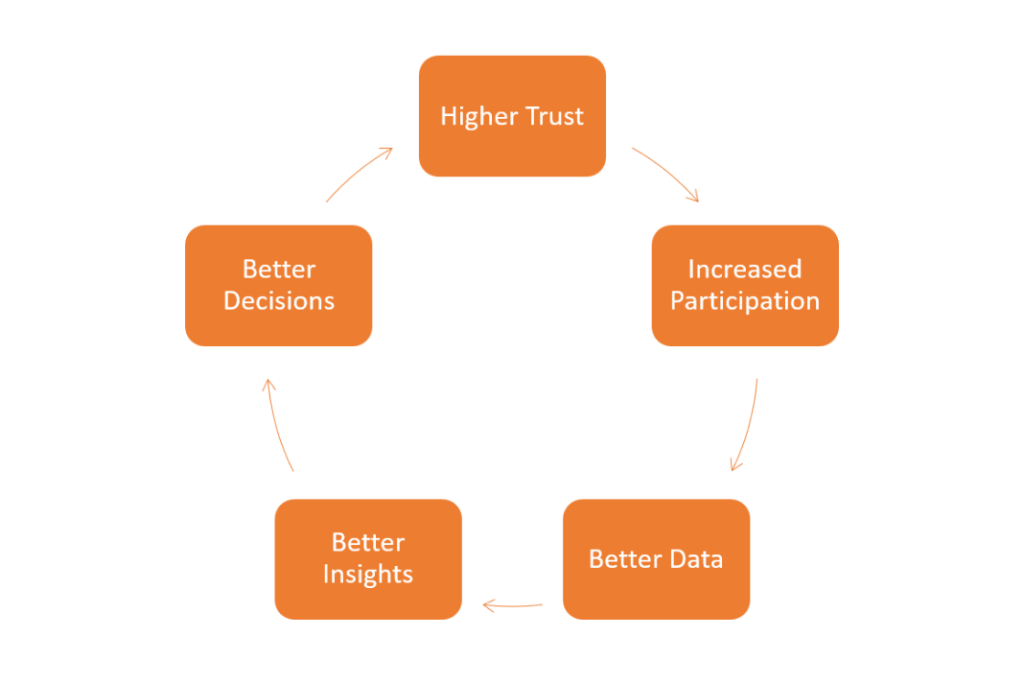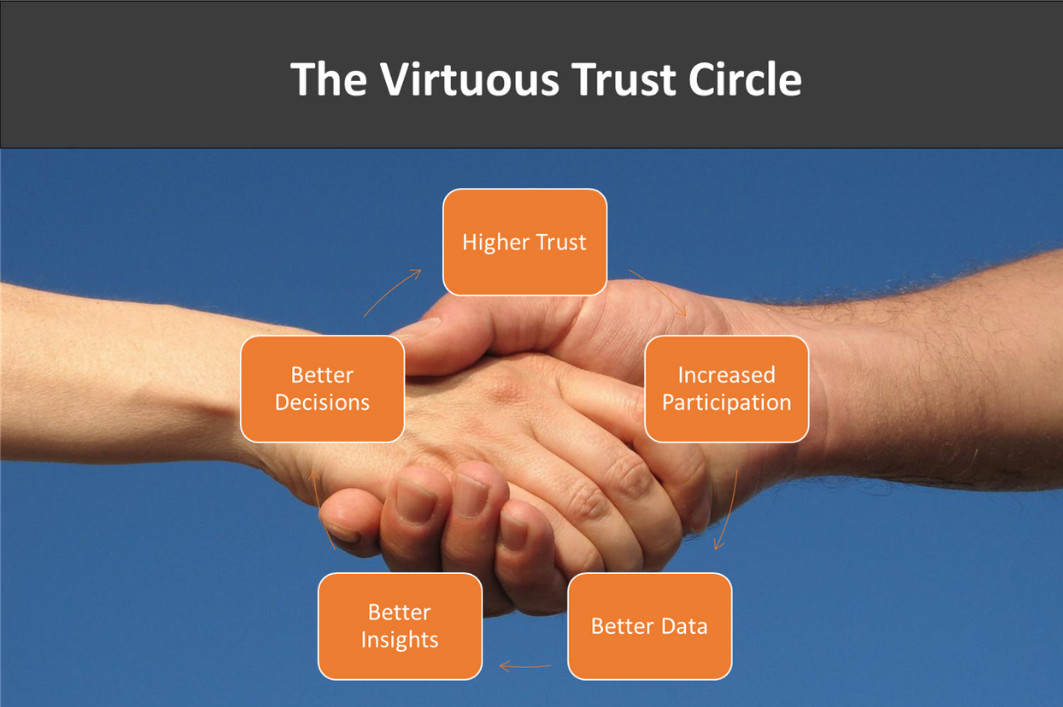If you read our
burning platform post, you will know that we believe that, as a sector, we need to work harder than ever to convince decision-makers to trust us, or we risk losing that trust. There are a number of actions we as individuals, companies and industry bodies need to take to ensure that trust remains strong.
One of those key actions is to continue to deliver accurate data and insights decision-makers can rely on. To do that we need high data quality, and for that we need willing participants, which takes up back to trust.
We have the choice to make this virtuous trust cycle a reality or we can bury our heads in the sand and allow the negative distrust cycle to continue to grow in strength. Going back or standing still are not options, by the way, so the choice is ours… upwards or downwards?

Participant Engagement Is The First Step on the road To building Trust
We all want to give clients great data and insights, which help them make better decisions. And in today’s fast-spinning world, we need to do that even more quickly and more cost-effectively than ever.
Unfortunately, in our desire to serve our clients, we are often guilty of either consciously, or sub-consciously, forgetting about the research participant and their needs; in the extreme case, seeing them as data points, a raw material from which we can extract value and discard when no longer useful. In a less obnoxious case, seeing them as passive respondents, who will ‘do anything for a buck’. Rarely do we see them as fellow human-beings – our friends, our children, our parents, ourselves – which if we did, would dramatically change the way we interact with research participants.
Have we as a sector collectively abandoned the concept of ‘do under others, aS YOU…’?
Whilst, there definitely should be a sufficient moral argument for treating people like valuable human-beings when they agree to participate in research, my experiences in running the GRBN Participant Engagement Initiative over the last few years has taught me that this is unfortunately not the case… at least not sufficient enough to significantly change how we as a sector treat participants*.
‘Fortunately’ there are other arguments for caring about participants as people and treating them with respect. The first is data quality. There is more than enough evidence to show the impact of participant engagement on data quality… better response and completion rates, more accurate responses, better qualitative insights… So, if you care about data quality, then you should care about participant engagement.
Secondly, we know that bad experiences negatively impact end-clients and their brands, and we should definitely care about that.
Willing Participants are our life-blood
People, who are willing to participate in research are the life-blood for that long-term sustainability of our sector, and unfortunately today, participation rates are falling lower and lower. Our research tells us that there are many reasons for this, some which we cannot impact and some which we can. Rather than complain about the ones we cannot impact, let’s focus our energy on those we can. And the first one we need to focus on is participant engagement, on giving people a great user experience when they do agree to participate in research.
If we cannot do that, if we do not respect people, then we cannot expect them to respect or trust us. The pool of people who are willing to participate will become reduced to those who are willing to except their time being abused for a small financial incentive. Are these the people, who you want informing your insights and your clients’ decisions? I think not.
if you want to help your clients make better decisions, start at the beginning, start at participant engagement
Get in touch to find out how we can help you do just that.
* It is not all doom and gloom. This year, I have met many individuals, who are taking actions every day to improve participant engagement, and I’m convinced that there are many more out there, whom I have not yet have the privilege of meeting. If you are one those, I would love to
hear from you.

Andrew Cannon
GRBn

 Andrew Cannon
GRBn
Andrew Cannon
GRBn 






